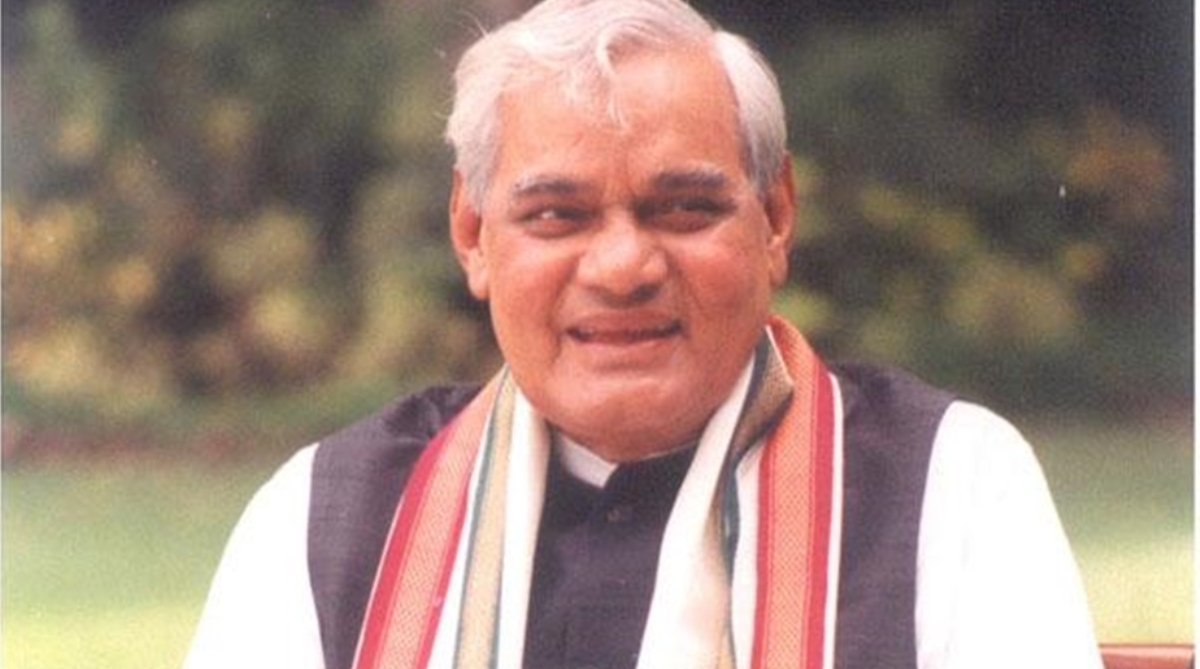Initiative to detect active TB cases in UP and Uttarakhand
The initiative is undertaken by the Institute of Heart and Lung Diseases (IHLD) in collaboration with Krafton India.
Vajpayee’s family roots are traced to Bateshwar in Bah tehsil of Agra district in Uttar Pradesh where his grandfather, Shyam Lal Vajpayee lived

Atal Bihari Vajpayee (Photo: IANS)
A pall of gloom descended in Uttar Pradesh and in Lucknow following the death of former prime minister Atal Bihari Vajpayee in New Delhi on Thursday.
The former prime minister and five-time MP from Lucknow was on a life support system in the All India Institute of Medical Sciences, New Delhi, where he passed away in the afternoon.
Uttar Pradesh was ‘Atalji’s’ “karmbhumi”. He won his political spurs in Uttar Pradesh first as a member of the erstwhile Jana Sangh and then as its president from 1969 to 1972.
Advertisement
Born in a humble school teacher’s family in Gwalior in Madhya Pradesh on December 25, 1924, Vajpayee’s family roots are traced to Bateshwar in Bah tehsil of Agra district in Uttar Pradesh where his grandfather, Shyam Lal Vajpayee lived.
Though born and brought up in Madhya Pradesh, Vajpayee had a deep connect with Uttar Pradesh, and later with Lucknow from where he was elected the member of Lok Sabha for five consecutive terms from 1991 to 2004.
After his formal education in Gwalior from where he completed his graduation from Victoria College ( now Lakshmi Bai College ), Vajpayee did his post graduation in political science from DAV (Dayanand Anglo Vedic ) College in Kanpur. After his stepping into politics , Vajpayee was elected for the first time to the Lok Sabha in 1957 on a Jana Sangh ticket from Balrampur in central Uttar Pradesh.
He lost to Subhadra Joshi of the Congress in the 1962 general election, but regained the Balrampur seat on a Jana Sangh ticket in the 1967 Lok Sabha polls.
Atal returned to UP’s electoral scene in the 1991 Lok Sabha election, this time as the Bharatiya Janata Party candidate from Lucknow. The early 1990s was synonymous with political uncertainty following the demise of the Janata Dal government at the Centre headed by Vishwanath Pratap Singh in December 1990.
The BJP which had extended outside support to the VP Singh government pulled the rug after the arrest of BJP president Lal Krishna Advani in Bihar. Advani, who had led a ‘rath yatra’ from Somnath in Gujarat for the construction of the Ram temple in Ayodhya, was stopped from entering Uttar Pradesh from Sitamarhi in Bihar by the then Lalu Prasad government in the neighbouring state.
Following the collapse of the four-month-old Chandra Shekhar government in 1991 after the Congress pulled support, mid-term elections to the Lok Sabha and the Uttar Pradesh Vidhan Sabha were called the same year. Vajpayee’s candidature from Lucknow in the Lok Sabha election was politically significant. He was elected MP for the first time from Lucknow after defeating his nearest rival Ranjit Singh of the Congress.
Atal re-emerged as the winner in the 1996 Lok Sabha election after defeating Raj Babbar of the Samajwadi Party. It was in 1996 that he was elected the Prime Minister, but he was in office for a mere 13 days. In the 1998 Lok Sabha election, he was re-elected for the third consecutive time from Lucknow after defeating Muzaffar Ali of the Samajwadi Party.
In the Lok Sabha election held next year in 1999, Vajpayee won again after defeating Karan Singh of the Indian National Congress.
Finally, he made it five in a row electoral victories from Lucknow in the 2004 parliamentary polls. This time, he defeated Raj Babbar of the Samajwadi Party. Thereafter, he gradually retired from active political life after the formation of the UPA-1 government in 2004.
Vajpayee did not contest the 2009 Lok Sabha poll. It was his trusted aide and senior BJP leader Lalji Tandon who won in 2009 from Lucknow. The 2014 Lok Sabha election from Lucknow was won by Rajnath Singh, now the Union Home Minister.
A significant feature of Vajpayee’s electoral victories from Lucknow has been that the state capital has emerged as the BJP’s political bastion. Ever since Atal won from here in 1991, the BJP’s unbroken stint has extended till the 2014 Lok Sabha poll, stretching over 23 years.
In his five terms as MP from Lucknow and three times as the prime minister in 1996, 1998 and 1999-2004, Vajpayee is credited with the infrastructure development of his constituency, including the rail over-bridges and the Scientific Convention Centre.
His last appearance in a BJP function was at the national executive meeting of the party held in Lucknow in December 2006.
Advertisement